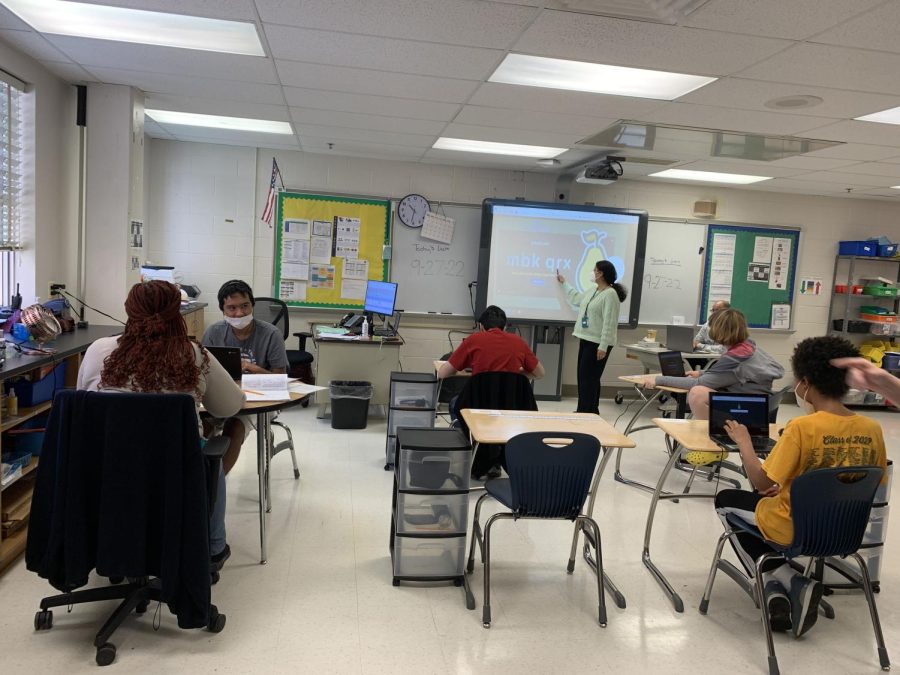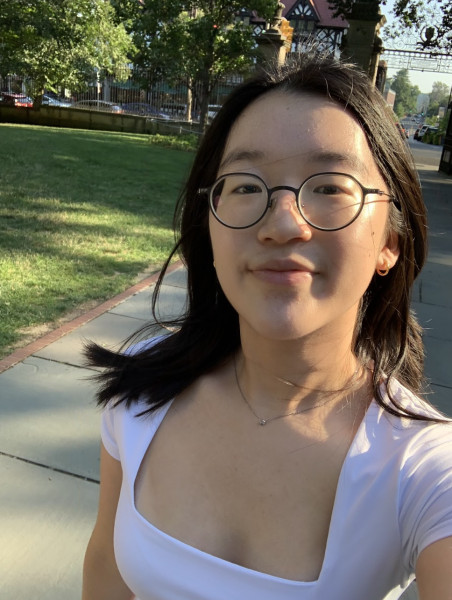Autism program brightens future for shining stars
The WCHS Autism Program provides specialized academic support, vocational training, life skills practices and speech or occupational therapy.
October 20, 2022
“Smile, don’t stare!” is an apt statement for what the WCHS Autism Program would like the community to know. Coined by the Lollipop Kids Foundation, it aims to explain that when faced with someone who may seem different, having a smile instead of a detached stare can make a world of difference.
Although not many students are aware of it, the WCHS Autism Program exists and has two spheres: a multi-classroom Classic Autism Program and Autism Resources Services. With a combined staff of 16 teachers and paraeducators, the two programs work to support WCHS students with autism spectrum disorder (ASD).
The Classic Autism Program serves students who are not able to learn from traditional special education instruction and require support in all areas. Autism Resource Services is similar but aimed towards a slightly different group of students: the students in this program attend classes with the general education student population but are two to three years below grade level, requiring individual accommodations and support.
The goal for students in the Classic Autism Program is to receive a Maryland High School Certificate, which differs from the traditional diploma and is awarded for completion of a special education program. As such, they work on an Alternative Learning Outcomes (ALO) curriculum, which combines general subject classes with a focus on community and vocational support.
“During the academic day, students work on ELA, Math, Science and Social Studies. Beyond academics, students also have two electives which are PE and Music,” Purvi Algama, a Special Education Teacher in the Autism Program, said. “Students also work on functional communication skills, vocational skills and community based instruction. To help students prepare for post-secondary life, they have the opportunity to go out into the community to work on life functional skills such as working, shopping, purchasing items, using a grocery list to find items, ordering food at a restaurant, etc.”
For students with autism, the markers of success may be different than those of other high school students, but they are just as significant. A key difference is that in addition to academic proficiency, they are also assessed on the life skills that they will need to increase their independence in the adult world.
“I love the moments when we watch students move from dependence to independence or from assistance to mastery,” Danielle Gilbert, a paraeducator in the Autism Program, said. “It is cause for celebration and is my favorite part of being a teacher.”
Regardless of these highs, working with students who have different and very specific needs can be challenging at times.
“We all struggle at times with learning how to communicate. It is frustrating to know that we can’t help with a problem because we have not been able to identify the problem,” Gilbert said. “When our students are struggling to let us know how they feel about something, but the message isn’t clear, it can be tough.”
Although the road is not always smooth, attending public high schools can be valuable for these students. They are able to interact with their peers and improve social skills. Furthermore, their participation in academic programs is supplemented by their access to important resources, such as specialized learning support and speech or occupational therapy.
“Having an Autism program at WCHS gives special needs students resources to learn functional living skills that allows them to improve their quality of life by being independent,” Algama said.
It can be seen that well-established Autism programs at public schools bring concrete benefits to the students, but WCHS is one of only four MCPS high schools to have a Classic Autism Program. Autism Resource Services is similarly rare, existing only at three MCPS high schools. The WCHS Autism Program team hopes to see this change.
“More schools should have an Autism program as it allows students to have programs close to their homes,” Gilbert said. “This provides equitable learning for students with special needs, and also for general education students to understand different perspectives.”
Although WCHS has taken meaningful steps to become a more inclusive community, the Autism Program team is aware that there are still misconceptions about students with autism. Unfounded assumptions can sometimes be made to fill in the gaps for people we are unfamiliar with. Moreover, students can be wary of approaching students with autism because they do not know how to interact with them. The Autism Program team wants to emphasize that there is no need to worry or be wary.
“Students with Autism have unique personalities that are amazing and with some patience can sometimes bring a profound understanding of both yourself and the student,” Algama said. “Students love it when their peers come up, say hi, and have a conversation with them!”



